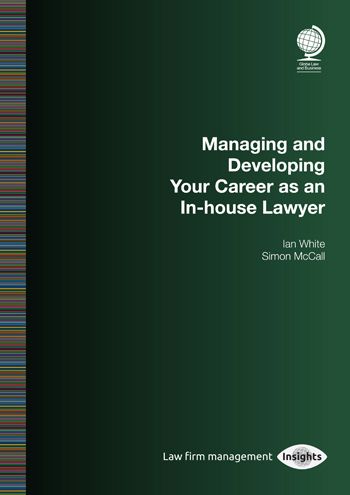
In-house lawyers need and want to develop their professional and management skills. But unlike lawyers practising in law firms, there may not be dedicated resources designed to support them. It will often be a case of DIY.
Managing and Developing Your Career as an In-house Lawyer by Ian White and Simon McCall is a companion to their report Your Role as General Counsel: How to Survive and Thrive in Your Role as GC. It seeks to provide practical ideas and tips on how a busy in-house lawyer can actively manage their own development. The aim is to help them perform more effectively in their current role and also prepare them for promotion or a move elsewhere.
It covers:
This Special Report is essential reading for any in-house lawyer wanting to continue learning and developing and enhance their career prospects. It is relevant for recently appointed in-house lawyers all the way up to more established GCs.